Beirut Eye Specialist Hospital on Medical Tourism in Lebanon
The only way Beirut Eye Specialist Hospital can compete with the other similar institutions is through the human factor. The surgeons practicing at BESH are leaders in the field of retinal surgery and diseases; they are highly qualified with excellent experiences and training from the US or Europe. Beirut Eye Specialist Hospital is committed to give the best medical treatment to every patient.
Interview with Dr. George Cherfan, Director of Beirut Eye Specialist Hospital (BESH)
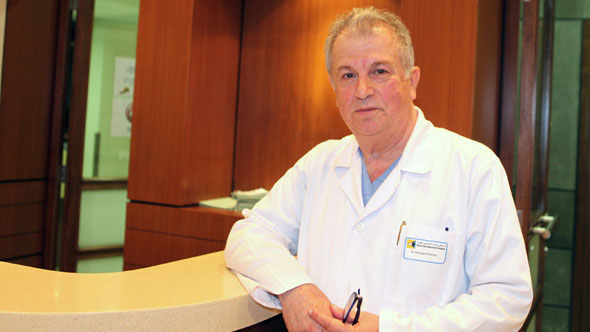
Given the regional context, many tourists perceive a heightened risk in Lebanon which has led to a drop in tourism. Has medical tourism in Lebanon also been affected?
Yes, it has certainly been affected because whatever is happening in the area is reflected in the local tourism situation. Since the problems began in Syria, the number of patients coming from Syria has dropped enormously and the tourism coming from the Arab world has dropped as well. We are linked with the surrounding environment and the Syrian situation is affecting us. Many tourists who used to visit from the Arab world would come through Syria; now they are not coming that way anymore. They may come by plane but the situation in their own countries is not very good economically and they are somewhat apprehensive about leaving to visit Lebanon.
In general, the situation is not very good and the numbers are dropping; if tourists are not spending money and there is less money moving around the country, even the locals are going to begin spending less money. 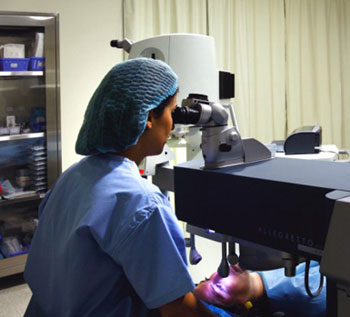 If potential patients can postpone their treatment, they will do so unless it is an acute problem.
If potential patients can postpone their treatment, they will do so unless it is an acute problem.
In my opinion, if you want to be competitive in the Arab world, you cannot have huge hospitals and medical institutions. This is because large medical facilities are a burden, they do not operate smoothly, there are many complaints, there is high overhead and they cannot excel in every medical discipline. A general hospital may be excellent in some departments but never in all departments; there is a need to diversify and spread funds throughout many areas instead of focusing on one specialty. That is why if we want to be competitive in the Arab world and attract patients, it is best to be specialized, which is the original idea for the development of the Beirut Eye Specialist Hospital. We could have built a general hospital but in order to be competitive and put Lebanon on the market as a medical tourist destination, we must be extremely competitive and specialized. This was our strategy in developing this facility.
There is a tremendous challenge in that medical tourism in Jordan receives extensive help from the government. How do you compete with that?
In Jordan, politics have played a large part in medical tourism; for example, there are patients coming from Libya and the Jordanian government was trying to help the Libyan government treat those patients. Obviously, the government is pumping funds into the hospitals. We cannot compete on that level but we can compete with patients from the Arab world who are paying for their own treatment.
The way that we compete is by the human factor.
The results are very encouraging. Obviously the technical results are good but if you have the right patient and choose the right treatment, the results will be excellent. The hospital is committed to not just doing the work for the sake of doing it, but finding the best treatment for the patient.
Most hospitals have the same type of technology and the same type of investigation but the difference is in the human factor. We are very selective in this regard; our employees are highly qualified with excellent experience and many are trained in the United States or Europe, having completed their specialties and published research.
We cannot pretend we are going to compete with Jordan when it comes to government help. Our government has plenty of problems to solve so the least of their worries is helping our hospital. Lebanon has always been and always will be a place that thrives on private initiatives, investments and institutions.
Would you say you are now a leading institution in Ophthalmology in the region?
Yes, we are because as I mentioned, the human factor is very important along with teamwork and our specialized focus. We have very strong departments in refractive surgery and retinal work, with an established reputation in Syria and the Arab world. The goal is to make this institution unique in the local area and the feedback to date from both patients and colleagues has been very encouraging.
The hospital was started one and a half years ago but we believe we are on the right track and will continue to pursue excellence. Our employees have excellent credentials and are established in their fields. We are also committed to a teaching program in conjunction with two universities and this work with residents is a way to help prepare the next generation of doctors.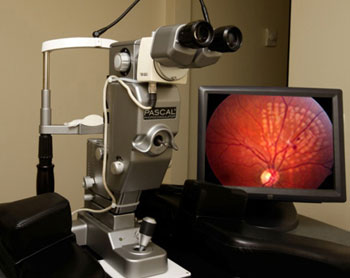
What procedures do you consider to be your specialty in the region?
The surgeons practicing at our hospital are leaders in the field of retinal surgery and diseases. We also have a very active and advanced department in refractive surgery, such as for myopia, hyperopia and keratoconus. We have an excellent team of specialists who are doing an exceptional job and have published research in their field.
What are your results? Do you have a good success rate?
The results are very encouraging. Obviously the technical results are good but if you have the right patient and choose the right treatment, the results will be excellent. The hospital is committed to not just doing the work for the sake of doing it, but finding the best treatment for the patient.
Our success rate is very high compared to other hospitals. In our retinal and refractive work, our results compare to the top universities and hospitals worldwide. For example, a study of our retinal results in comparison to American hospitals showed that we are doing very well. We are doing the same type of refractive surgery in our hospital as what is being performed in the United States and we pursue new ideas even more aggressively.
One of the major advantages of your hospital must be the cost.
Yes, that is absolutely true. The cost is much less and we can also pursue new ideas that are ethically sound without having to wait for FDA approval or statistics. If the hospital feels the surgery is safe, we can go ahead and do it.
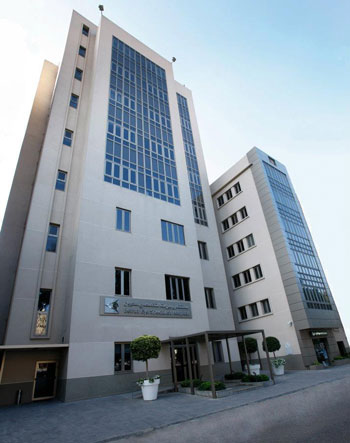 We have some cutting-edge ideas in Ophthalmology and as I mentioned, if we feel the idea is ethically right and not harmful to the patient, we can perform the procedure without the lengthy process required in many countries.
We have some cutting-edge ideas in Ophthalmology and as I mentioned, if we feel the idea is ethically right and not harmful to the patient, we can perform the procedure without the lengthy process required in many countries.
Would you consider this to be experimental surgery?
No this surgery is not experimental. We feel that if we use a new technique that has not been explored somewhere else, it is because it will yield better results than the traditional method. These are not experiments to see if it will work but we must believe in it and feel it is ethically right. The hospital has a board made up of the chairmen from each department to approve these techniques and the patients must approve as well.
As an example, we are one of the only places outside of the United States using the technique of KPro or the Boston Keratoprosthesis. This is an artificial cornea which can be used to replace a natural cornea which has failed or been rejected. Our hospital may be the only location outside of the United States in which this technique is performed frequently. We have three or four patients receiving this treatment on a monthly basis; in fact, today there are two patients having this procedure. So we are ahead in the area when it comes to new techniques or applying new ideas.
Are there other specialties in which you are very unique in the world?
Yes, we were the first to use an inlay to check the intraocular pressure in the eye and this has since been done all over the world. Normally, in order to measure the pressure inside the eye you must use a technique called applanation. A German company developed a new idea of putting an implant inside the eye to measure the pressure using a sensor without having to touch the eye. 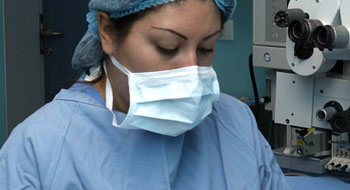 So the patient’s eye pressure can be monitored at home on a regular basis by simply holding the sensor near the eye, without the need for a hospital visit, just like checking blood pressure. This technique had been used safely and successfully many times on animals, but our hospital was the first to perform this technique on a human eye. This is useful for patients suffering from glaucoma who find it difficult to visit the hospital regularly.
So the patient’s eye pressure can be monitored at home on a regular basis by simply holding the sensor near the eye, without the need for a hospital visit, just like checking blood pressure. This technique had been used safely and successfully many times on animals, but our hospital was the first to perform this technique on a human eye. This is useful for patients suffering from glaucoma who find it difficult to visit the hospital regularly.
How do you envision the hospital advancing in the future?
The idea is to provide good, sound care to the patient. Our objective is to provide the best environment and treatment for our patients and to prepare the next generation of doctors. Initially, it will work like any other institution – we will have our difficulties and we are not subsidized so that will present challenges although it is not a major problem. Our main objective is to offer excellent patient care and to provide a healthy, happy, professional working environment for doctors.